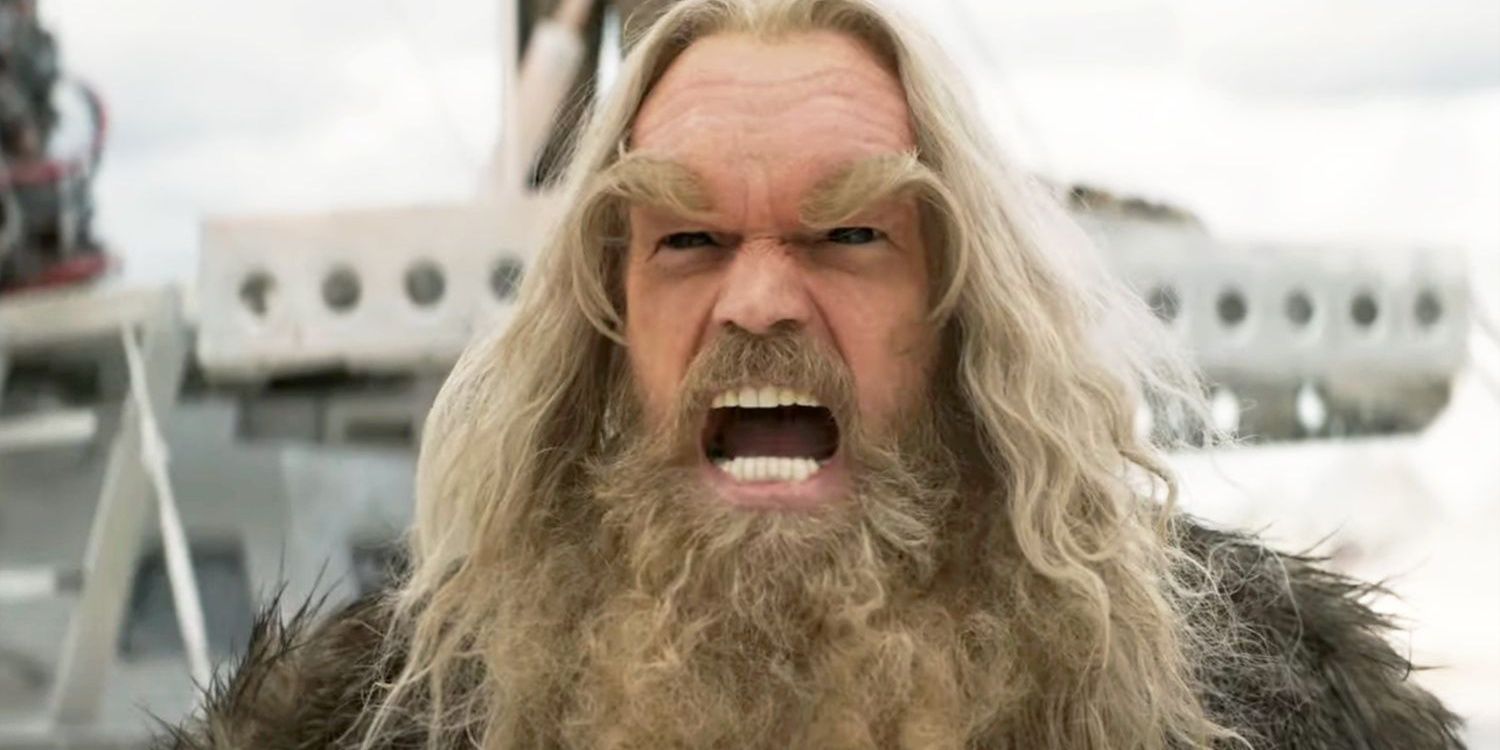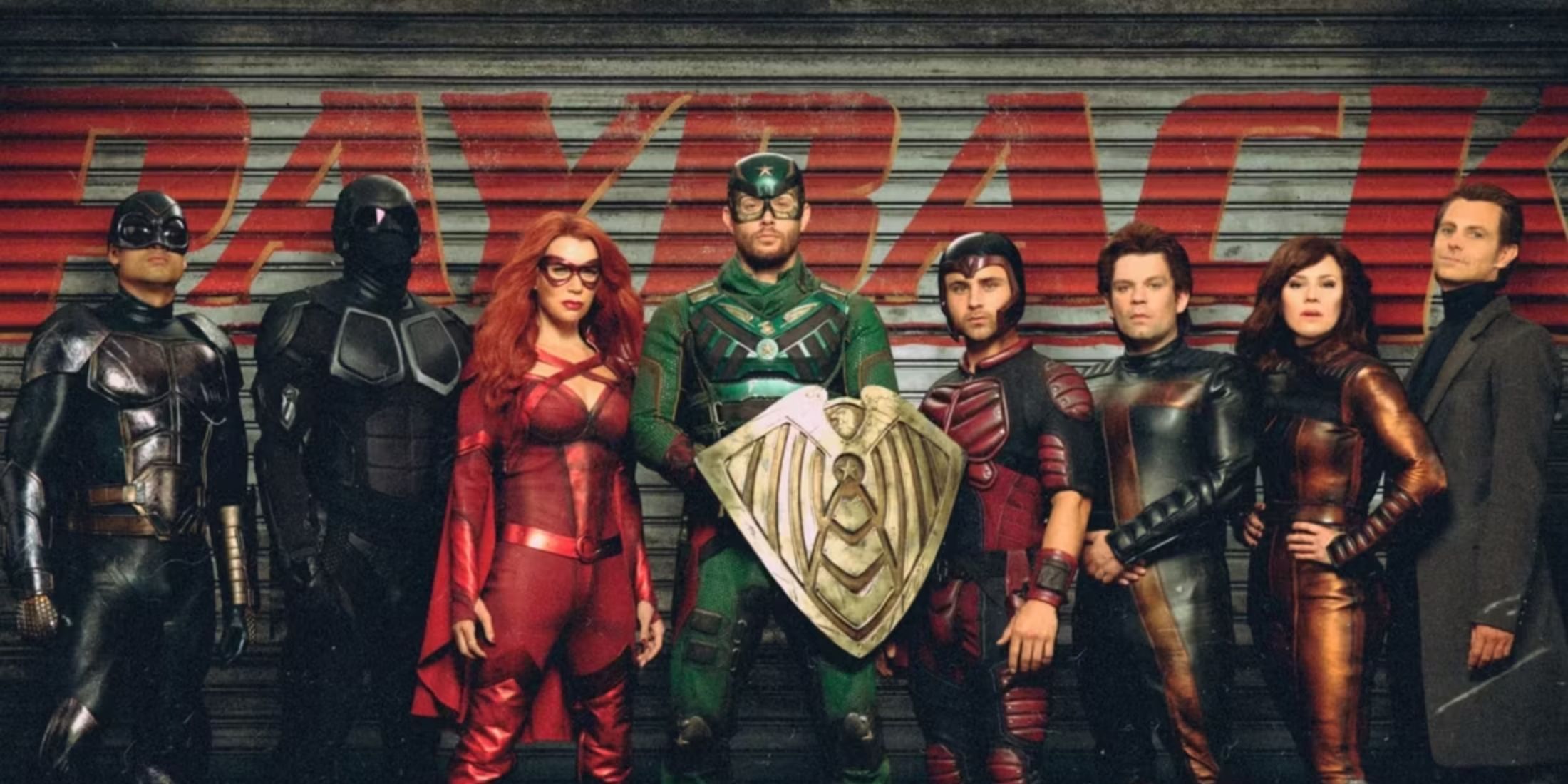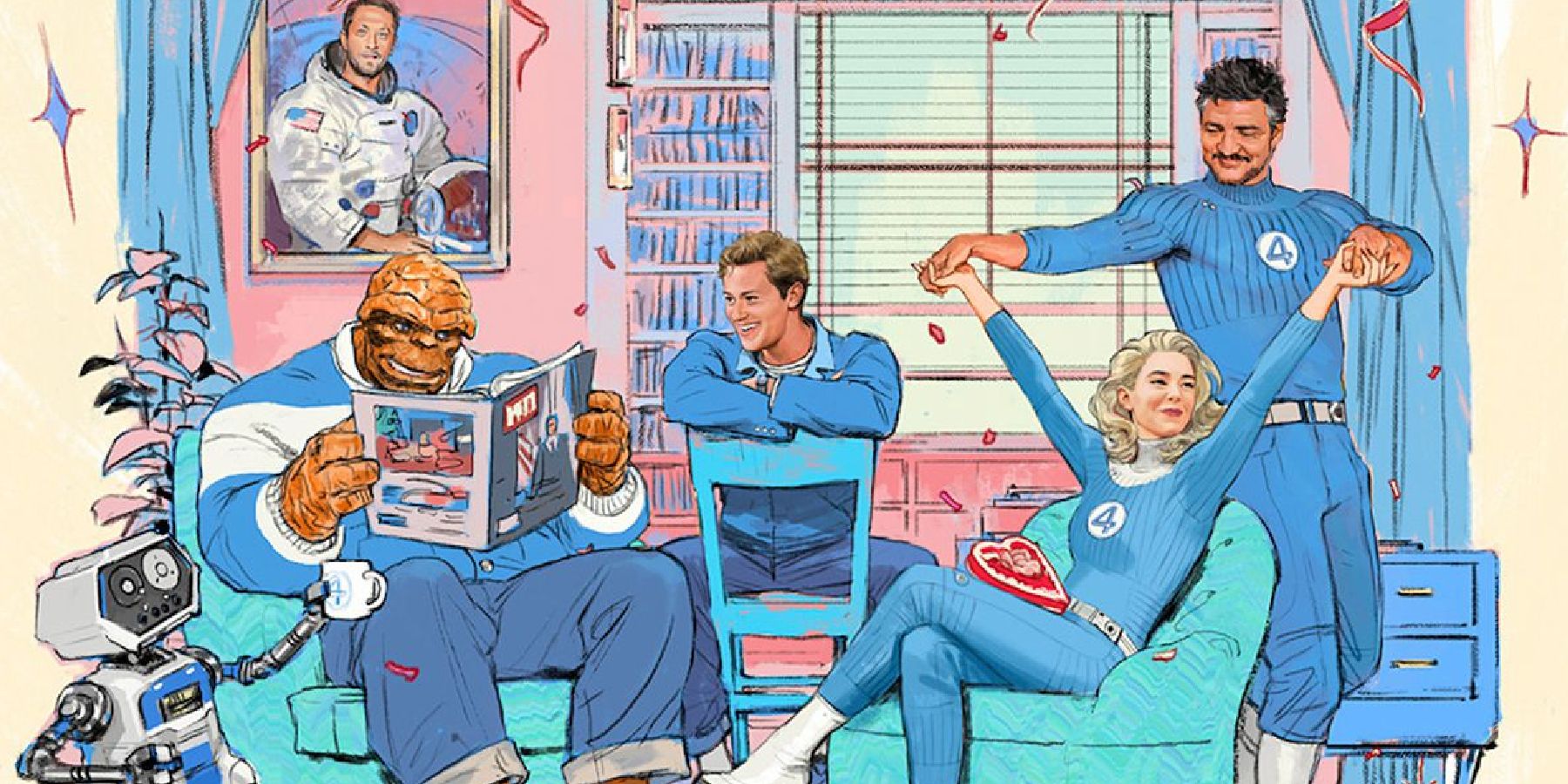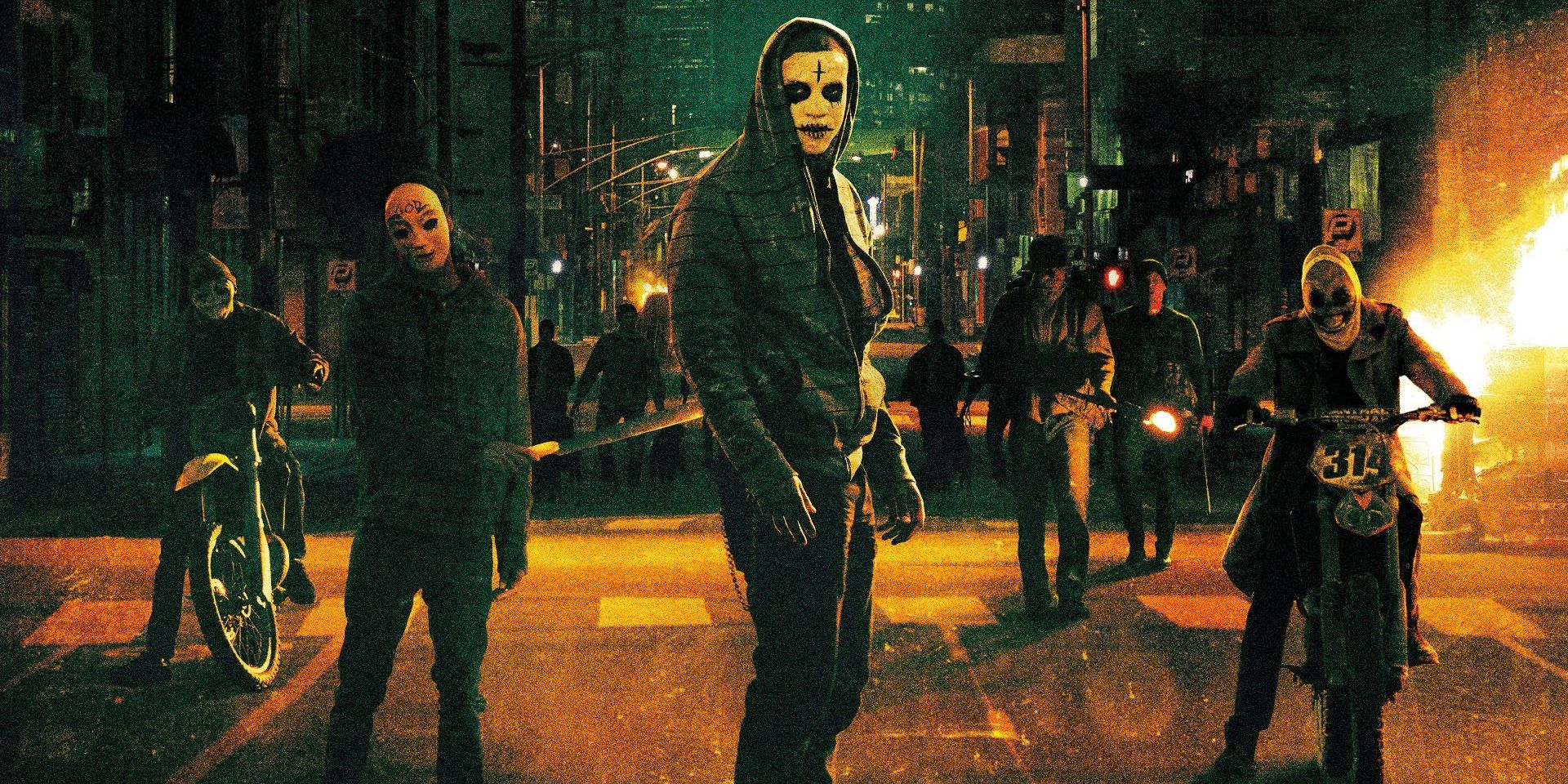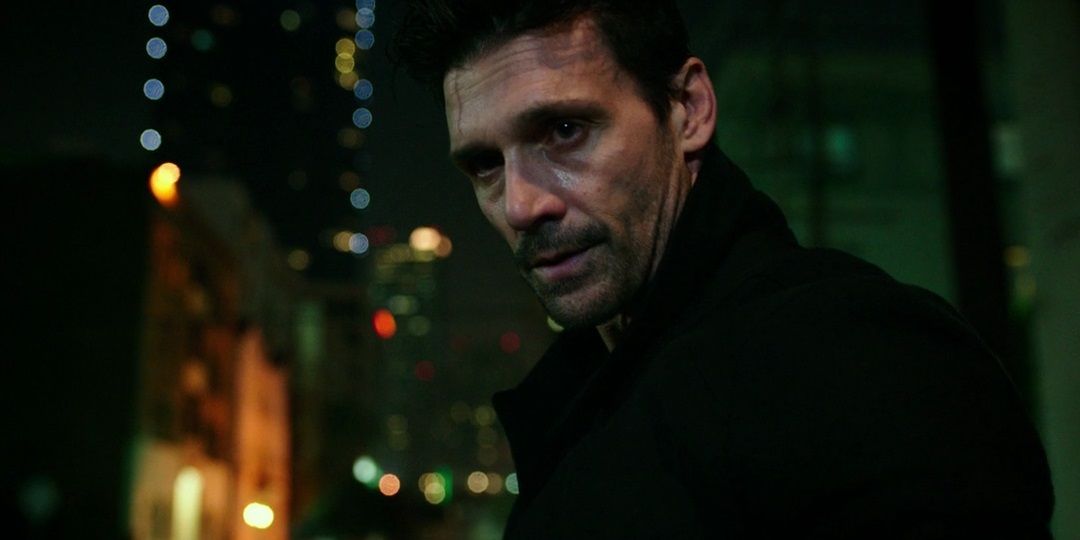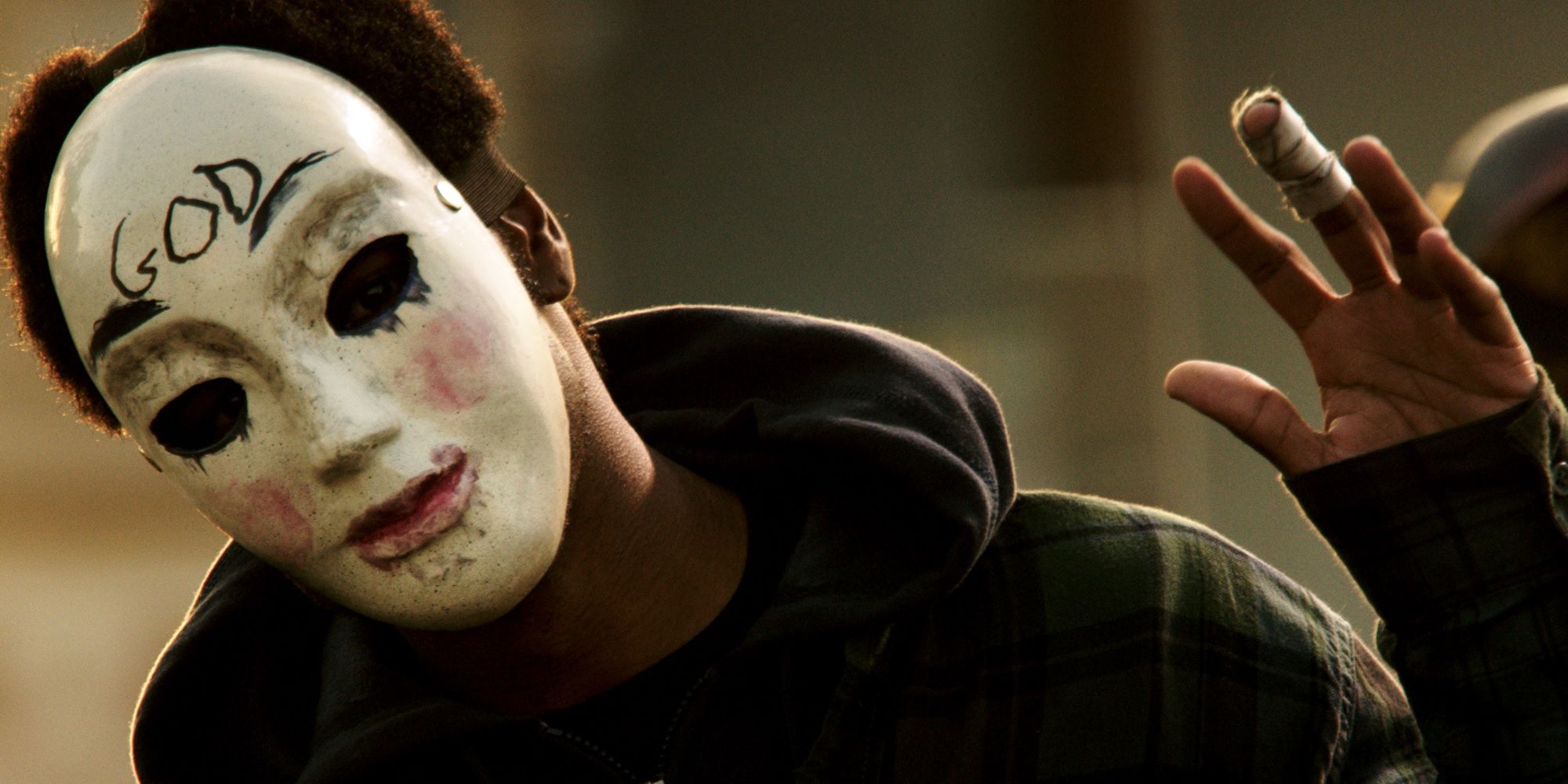Screenwriter James DeMonaco was probably able to sell his script for The Purge on the strength of the concept alone. A dystopian future America in which all crime is legal for 12 hours a year is a great high-concept horror premise that unsurprisingly launched a lucrative franchise. But the first Purge film squandered that premise with a generic home invasion thriller. There’s barely any worldbuilding – just a band of masked creeps terrorizing a family. It plays like Hush or The Strangers. The Purge might as well not be going on outside the house.
The sequels to The Purge have dug into the expanded universe in more depth, but ever since the third movie – 2016’s The Purge: Election Year – the filmmakers have gone way overboard with the politics. Although The Purge is tailor-made to broadly satirize issues like gun violence and rising crime rates, the third film crammed it through the narrow lens of one election cycle. Since then, the franchise has leaned too heavily into unsubtle political commentary, singularly focused on the policies of the Trump administration. The most recent entry, The Forever Purge, is all about protecting America’s borders.
From Election Year on, the New Founding Fathers of America became a caricature of the alt-right. This could’ve been a smart move that put real-world villains in a horror context, but it’s let down by a tactless approach that takes the political parallels too far. The protagonist is a thinly veiled Hillary Clinton stand-in: an anti-Purge presidential candidate being targeted by Purge-loving domestic terrorists. Each subsequent sequel has doubled down on heavy-handed political satire that blandly references recent events. The First Purge is more interested in Trump jokes than scares: it has the phrase “nasty woman,” a spoof of the infamous Access Hollywood tape, and the film’s poster is just a picture of a MAGA hat with The First Purge written on it.
The Purge: Anarchy Is The Best Movie In The Franchise
There’s only been one really great Purge movie that indulges in the violent terror of Purge night and also explores the politics of the premise: the second one, The Purge: Anarchy, a riveting dystopian action thriller. After the first Purge movie confined itself almost entirely to a single house, the second one took audiences onto the streets, where chaos reigns supreme. And it’s not just a series of one-note vignettes with unsuspecting civilians being attacked by sadistic killers. Thanks to Frank Grillo’s tough-as-nails turn as Punisher-style Purge vigilante Leo Barnes, the innocents have a chance to fight back.
The story of The Purge: Anarchy explores the inherent classism of a Purge system without being too on-the-nose with the commentary. Naturally, with all their money and resources, the elites of society would easily survive a 12-hour Purge. Economically disadvantaged people who can’t afford high-tech security systems or hired muscle are the only ones who would really suffer. In Anarchy, the rich don’t just want to survive Purge night – they want to enjoy it. A secret society of rich people hires mercenaries to kidnap innocent civilians off the street so they can have the fun of killing them without the danger of retaliation. They’re all thrown into a dark room surrounded by gun-toting socialites who spend each Purge shooting fish in a barrel. Fortunately, Leo Barnes is there to save the day. He turns the tables on his wealthy would-be killers in glorious fashion.
The Perfect Blend Of Spectacle And Social Commentary
The Purge: Anarchy finds the sweet spot between delivering all the action and spectacle that the premise has to offer while also providing plenty of social commentary. That commentary isn’t outlined by the characters; it’s baked into the plot, so it doesn’t get in the way of the thrills. Instead of explaining the themes in the dialogue like the later Purge films have done, Anarchy expresses them visually through the joy that rich people take in killing kidnapped poor people – and the gruesome satisfaction of Barnes giving them a taste of their own medicine. This is the only Purge film that doesn’t underestimate its audience’s intelligence (a hypocritical move in this franchise).
Since 2016, The Purge series has defined itself as the horror franchise of the Trump era. That era has since ended, so the filmmakers can no longer lazily rip phrases and policies from news headlines and jam them into the world of The Purge. They can finally go back to telling their own stories that lampoon political issues like the class divide from a less specific standpoint. Now that the White House has been taken over by an administration whose policies aren’t so easy to turn into horror movies, Purge fans might be able to look forward to the return of Anarchy’s subtler, sharper satire in the franchise’s future.

